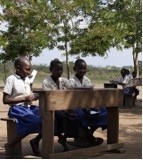
The village of Namauni, located in Tanzania, was able to build a teachers house at the school with the coming of the deep-capped water well.
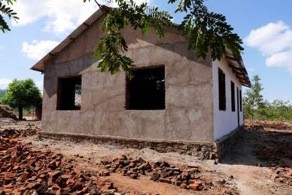

The school and teacher’s buildings were constructed with small clay bricks, but there were no water sources anywhere near the school, which made construction difficult and costly.
With the well nearby, the construction of the buildings was made much easier. In fact, the well brought down the going cost of bricks from 50 Tanzanian Schillings apiece to 30 Tanzanian Schillings apiece, all because water was readily accessible to make the bricks. The village also expects a housing boom in the near future, in large part because there is a nearby source of clean, disease-free drinking water. Having a nearby source of water will also increase the productivity of needed bricks.
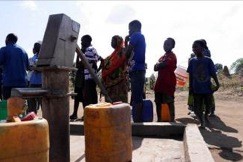
Perhaps the greatest impact is in the lives of the children; particularly the girls. Instead of using valuable time to collect water, they can now spend that time at school getting an education as well as in other village activities.
WOULD YOU LIKE TO HELP OTHER VILLAGERS EXPERIENCE THE SAME TRANSFORMATION IN THEIR VILLAGE?

The village of Namauni, located in Tanzania, was able to build a teachers house at the school with the coming of the deep-capped water well.
The school and teacher’s buildings were constructed with small clay bricks, but there were no water sources anywhere near the school, which made construction difficult and costly.
With the well nearby, the construction of the buildings was made much easier. In fact, the well brought down the going cost of bricks from 50 Tanzanian Schillings apiece to 30 Tanzanian Schillings apiece, all because water was readily accessible to make the bricks. The village also expects a housing boom in the near future, in large part because there is a nearby source of clean, disease-free drinking water. Having a nearby source of water will also increase the productivity of needed bricks.
Perhaps the greatest impact is in the lives of the children; particularly the girls. Instead of using valuable time to collect water, they can now spend that time at school getting an education as well as in other village activities.
WOULD YOU LIKE TO HELP OTHER VILLAGERS EXPERIENCE THE SAME TRANSFORMATION IN THEIR VILLAGE?
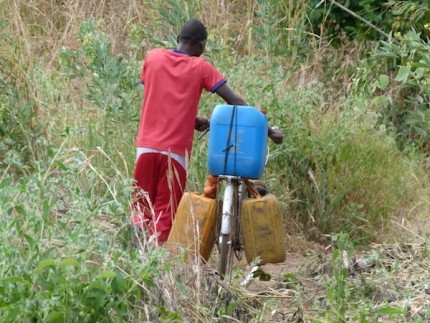
The village of Rweje in Tanzania had the most number of buckets and jerry cans lined up at a water well that our Water for LIfe Initiative team had ever seen.
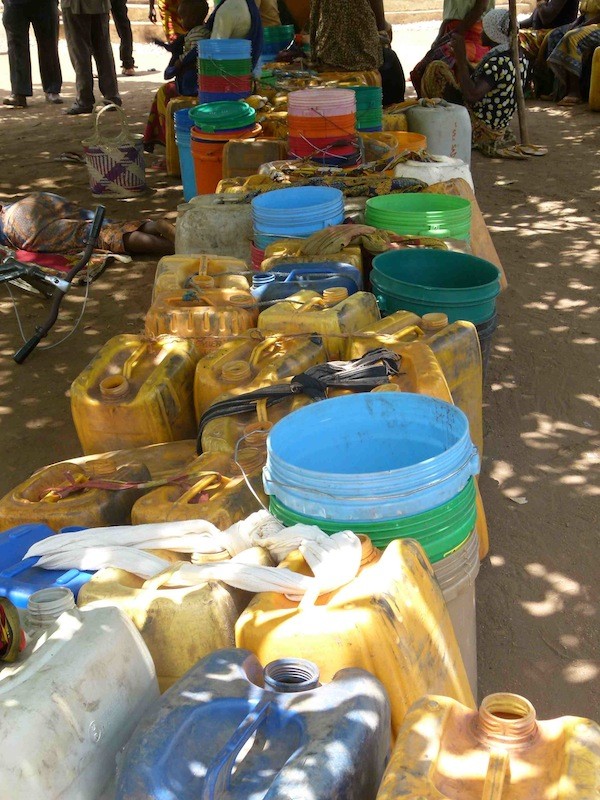
In fact, they lost count after 200!
It turns out that four villages were getting clean water from this one well.
Because there were so many people depending on this well, the borehole committee set certain days for each village to come to get water to try to reduce the pressure on the well.
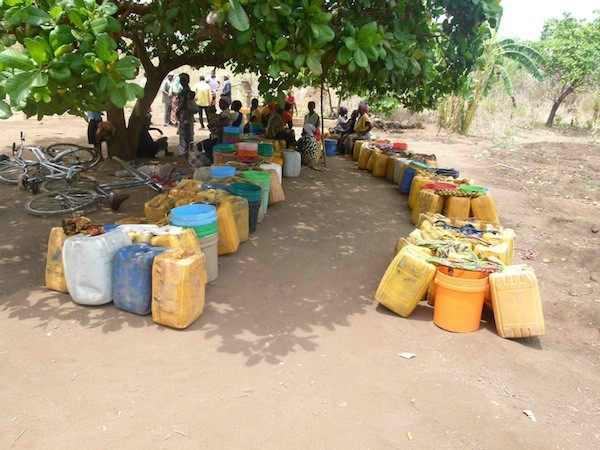
Before this water well was provided, women had to spend the whole day walking as far as five kilometers and waiting in a long lineup for their turn to get one bucket of water.
The borehole committee was very organized. They issued receipts for each bucket of water sold so they could account for all the funds collected. Plus, they even had a sign posted with all the policies such as
- opening and closing times,
- everyone must get a receipt,
- villagers must take good care of the pump and wait their turn in line, and
- each village must come on their designated day to get water.
The committee has collected 6,000,000 Tsh ($3700 CA) in five months of operation, so it has become a big revenue generator for the village. The village decided to use some of the funds to complete the roof on a school that the local government started but did not finish.
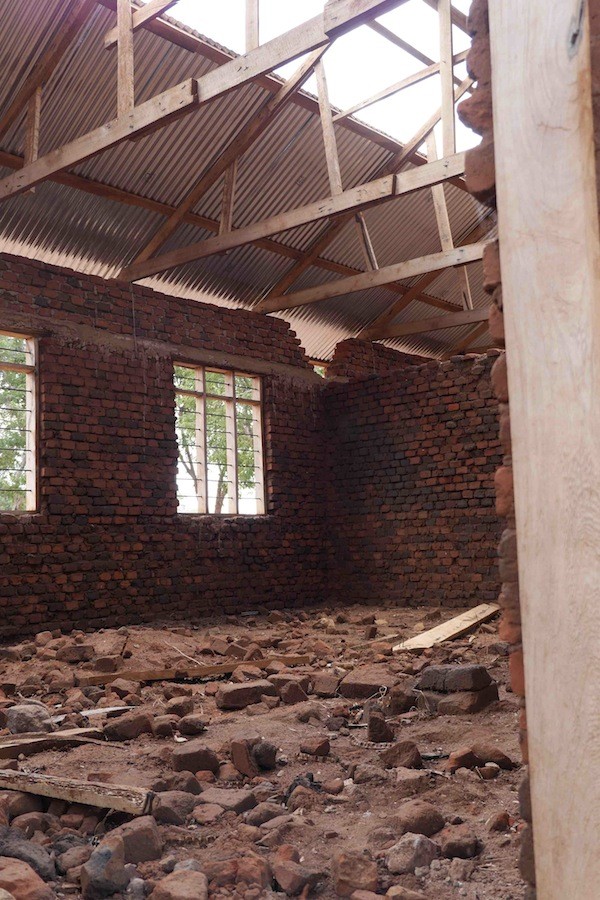
With the extra money from the well, they also had plans to complete the classrooms, one at a time as they have the funds.
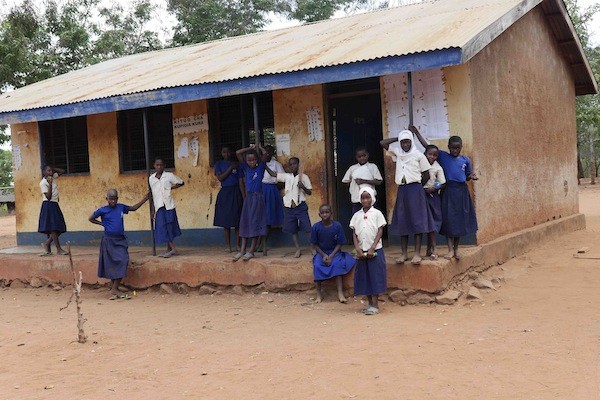
This one water well has transformed the lives of these villagers and is enabling better education and encouraging development.
WOULD YOU LIKE TO HELP PROVIDE A WATER WELL TO OTHER VILLAGES LIKE RWEJE?
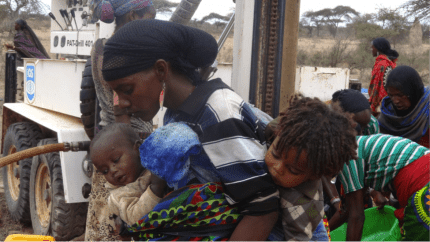
Hawa Guyo of Melbena, Ethiopia is a mother who always carried two children (one in the front and one on her back) as she walked walk eight hours a day to fetch water.
Upon arrival…the water was extremely dirty. People and animals used it at the same time. The donkeys and other animals urinated in the same pond that Hawa was using for drinking water. She explained that both her and her children were getting sick from the water-borne diseases. To add to this, since Hawa did not have money to get treated, they suffered a lot for years.
Today, Hawa shared that their life is totally different for three significant reasons.
Firstly, after the water well was provided in her village, they only walk five minutes to get water.
Secondly, Hawa gets clean water from the well and they’re not suffering from water-borne diseases anymore.
Lastly, the responsibility of fetching water used to fall on the little girls and women and because of that the girls were not able to go to school. Now, since they no longer walk eight hours to fetch water, they have time to go to school. Hawa said that she is now able to send her children to school.
Hawa urged that the drilling support for the Borana people should continue so that many people are protected from sickness and the little girls can get an education.
“Thank you for what has been done for me and my community,” shares Hawa.
WOULD YOU LIKE TO HELP OTHERS LIKE HAWA?
ONE WATER WELL TRANSFORMS AN ENTIRE VILLAGE
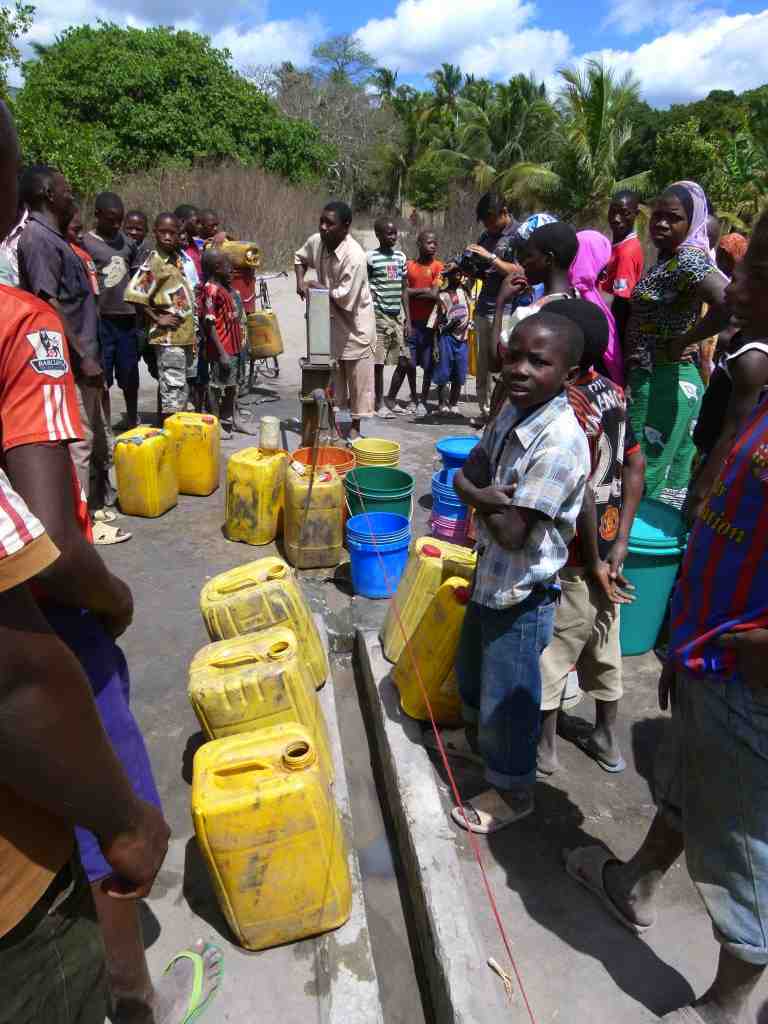
In May 2008, GAiN drilled the first deep-capped water well in Tanzania in the village of Malungo.
This remote village, located in the plateaus just three hours from the town of Lindi, had hundreds of people that were desperate for water. At that time, their only water source had been a filthy swamp.
Approximately two and a half years later, the team went back to visit the village to see how things were going.
When the team arrived unannounced, the first thing they saw was a lineup of buckets waiting to get clean water that was coming out of the pump.
“It was amazing to see the amount of people using the well,” says Dennis Fierbach – Director of Water Strategies.
The village chairman shared that the well was supplying water for three villages with over 8,000 liters pumped every day for the past four years.
All of the water-borne diseases the villagers used to suffer from were all gone.
People had good health and energy to develop their village, resulting in new brick houses that were built and new businesses that were started.
Since the villagers were charged a small fee for the water, the borehole committee also used the well as a source of income to build Malungo’s economy. With the surplus funds, the village built a school, began building a fish-farming business, and was in the process of collecting information to construct a medical dispensary.
“It was so rewarding to see the transformational impact the well had on Malungo,” shares Fierbach. “The well provided hope and acted as a springboard for this community.”
VILLAGERS DESPERATE FOR HELP
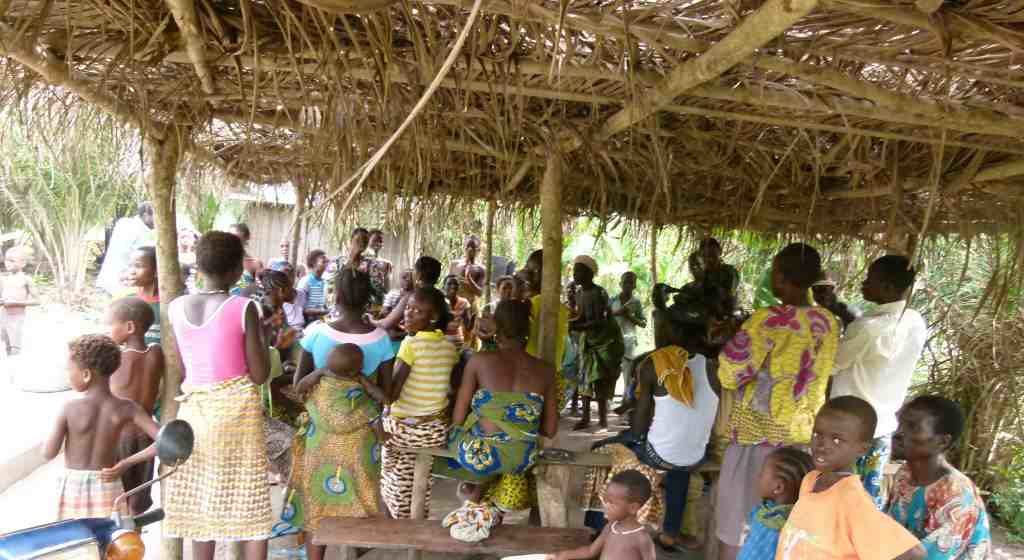
The joy and anticipation that a well brings to a village is difficult to explain to a person that has always had easy access to clean water.
But, for those in Haweme village, they know this desperation far too well. Located in the middle of the jungle in the south of Benin is a village in desperate need for almost every type of service. Locals have referred to it as the “forgotten place”.
After years of suffering from the lack of clean water, Haweme applied for a water well. Since they received no help from the government, villagers lost all hope and never expected to see a well in their village.
Imagine the excitement when – not to long after – GAiN’s team showed up not and told the village that they would soon have a well. They were overjoyed! They had been suffering and for the first time someone took notice.
As a result, their deep-capped well was drilled at the end of 2011.
At the beginning of May 2012, GAiN dropped into the village unannounced to record the thank you video for the donor who provided the well.
To the team’s surprise, there were about 75 people gathered at the well, under a temporary shelter they had constructed. The villagers were celebrating by singing and dancing.
When Patrice, GAiN’s Country Manager, asked what they were doing, they enthusiastically shared they were celebrating the gift of the well. In fact, every five days, the village got together to celebrate the gift of the well! And they said, “we will keep it up!”
They shared that GAiN must be good people because they brought such a good gift. They went on to say, “we are open to whatever you want to do in our village. Come build a church, help us with a school. We are in desperate need of so many things.”
The team assured them that they would be back.
Today, Haweme is a village that has been transformed as they have experienced the love of God in word and deed.
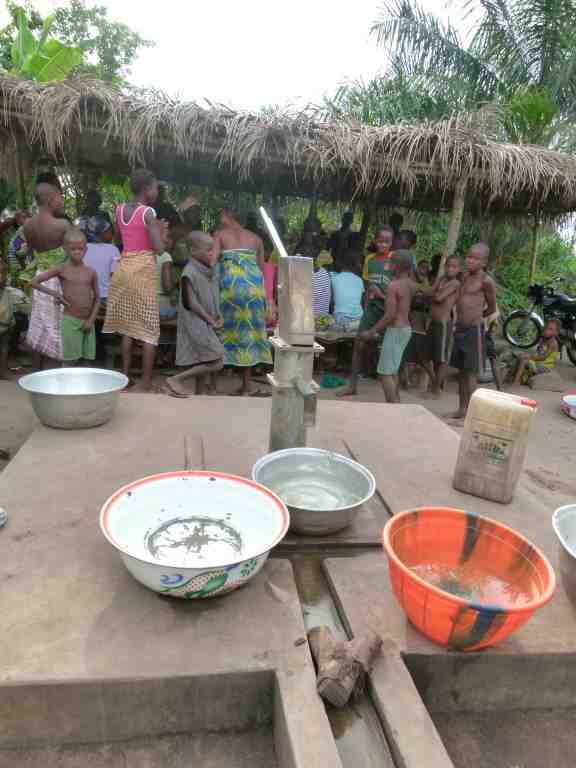
WOMAN FINDS SPECIAL MEANING FROM WELL
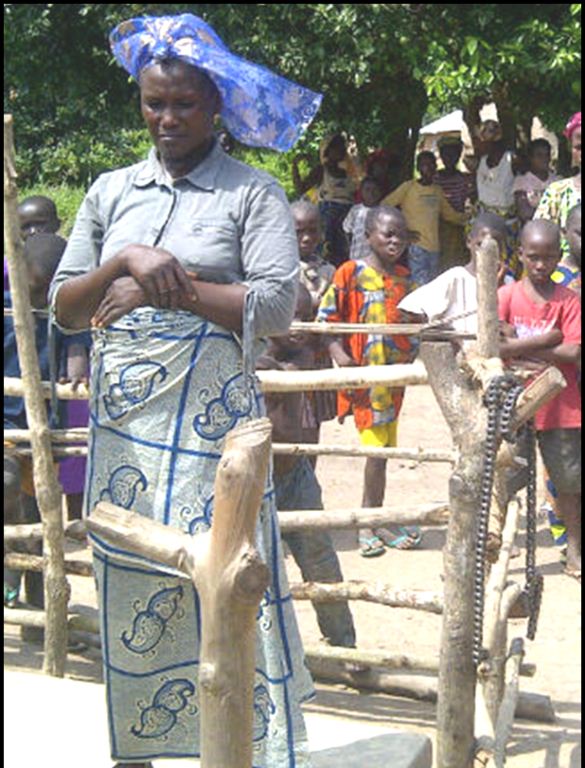
After travelling for eight hours to the village of Goro Bani in northern Benin, the GAiN team was greeted with dancing and singing.
The village’s jubilation was undeniable. The chief gave a speech and expressed how happy they all were. He shared how the women used to walk for hours and cross both the railway track and the main highway to get water from the filthy swamp. The chief explained how the journey was extremely dangerous and that the water was very dirty.
Corimoo, one of the most expressive dancers that day, then spoke to the team. She said that she believed the well was there because of her daughter. She explained that before GAiN provided the well, Corimoo and her daughter went out to fetch water at 2:00 am. one night. Upon arrival, there was a line up at the swamp. Each woman was waiting for the water to seep into a hole that they dug.
After some time, Corimoo finally filled the first bucket and sent her daughter home with it. Corimoo told her to bring the bucket back while she filled the second.
But, her daughter never made it home. She was killed crossing the highway; another innocent life was gone.
Today, the water well is in the middle of the village, so that people are just a few steps away from clean drinking water, eliminating any travel time and danger. Corimoo said she had no words to express her gratitude for the well.
“She didn’t need to. I personally felt it,” shares Dennis Fierbach, Director of Water Strategies. “I was tearing up.” Water has so much more meaning in Benin; water means security, it means dignity, it means health! As they say in Africa – “Water is Life”.
Fierbach reflects, “I’ve been back to Benin a few times since I met Corimoo. I will never forget her and the transformation that the water well brought to her village. I can truly see the difference that a well has made in people’s lives. I know that there are a lot more stories like Corimoo all over the country.”
CHILD’S FUTURE LOOKS DIFFERENT BECAUSE OF ONE WATER WELL
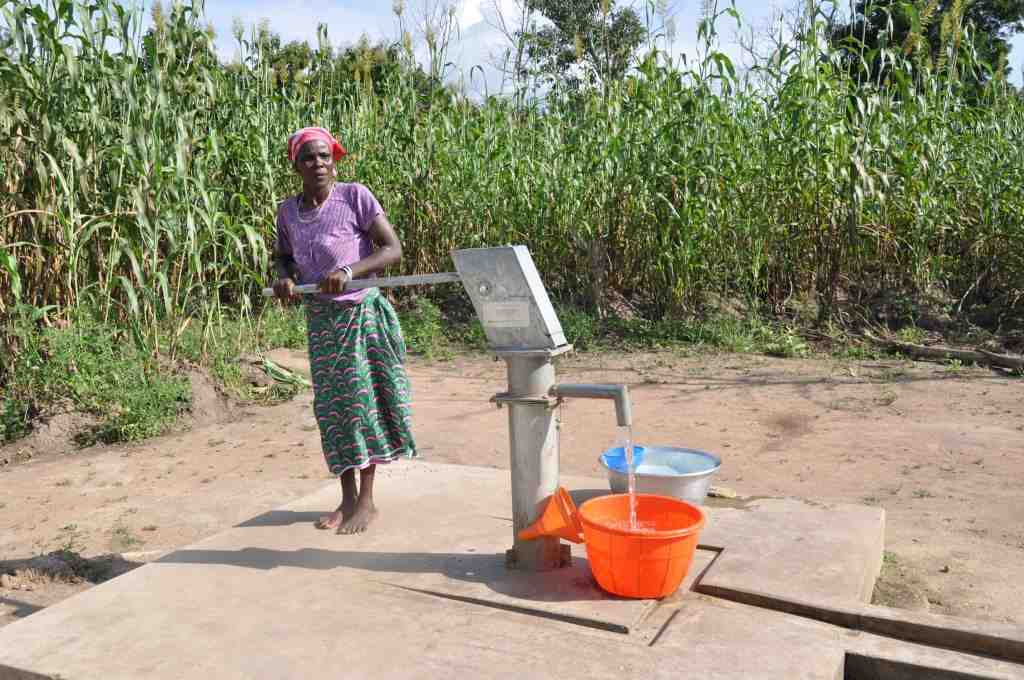
It sits stagnant, murky, and at times almost black. Garbage and waste float on its surface. Riddled with disease and parasites, it is the only source of water for thousands living in the remote regions of Benin, West Africa.
Women and children crowd around the uncovered opening of an old hand-dug well, vying to lower their buckets into the ground. They wait. Fights break out. Some women choose instead to travel at night to collect water, leaving them open to many dangers.
Lingering nearby the well is Debora. A grandmother in her late 50’s, she has grown weary from many hardships. She lowers her bucket into the well, fills it with the putrid liquid and pulls it back up to the surface.
With 45 pounds atop her head, she trudges homeward through six-foot tall grass and comes to a stop at a highway.
She waits as cars and trucks go by— often up to 30 minutes—before it is safe to pass. Others have been killed while crossing the same road.
After Debora’s two-kilometre trek, she arrives home to her children and precious 11-month old granddaughter, Naomi. The very water she takes pains to provide them may make them ill, and could ultimately cause their death. But, tomorrow, she will go again.
She has no other choice.
“The situation was so bad that I literally cried every night,” she says. “The stress of collecting water was causing problems in my marriage. I prayed to God to find a solution.”
By providing deep-capped water wells right in the heart of villages, Global Aid Network (GAiN) is helping to break the cycle of disease and death that devastates much of the developing world.
Women are able to care for their families. Children are going to school instead of travelling long distances to collect water. Agricultural production is increasing, community gardens are being grown for profit, businesses are being launched, and water-borne disease has been eliminated.
Since GAiN provided a well in Debora’s village, her life and the lives of her family members have been radically changed. She no longer spends her days travelling to collect dirty water. Now, she goes to the local well and fills her bucket with pure, fresh, disease-free water for her family. Her children and grandchildren no longer suffer from debilitating sickness.
When Debora looks at her granddaughter, she has hope for the future. Naomi will not walk the same road as her grandmother. She will have opportunities generations before her did not have. She will play. She will go to school. She will engage in her community.
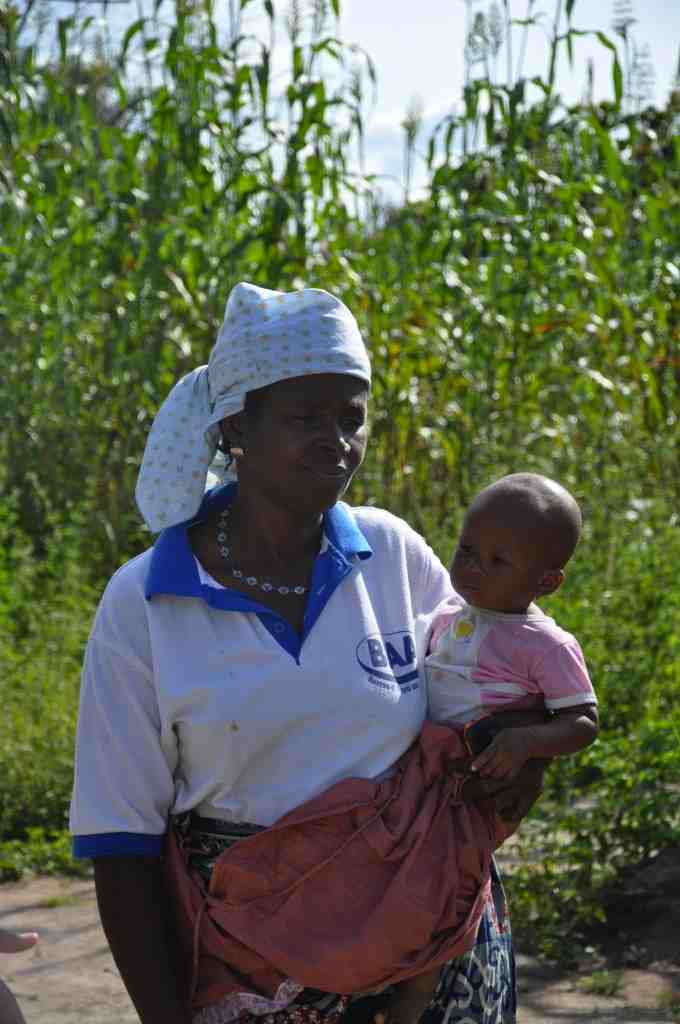
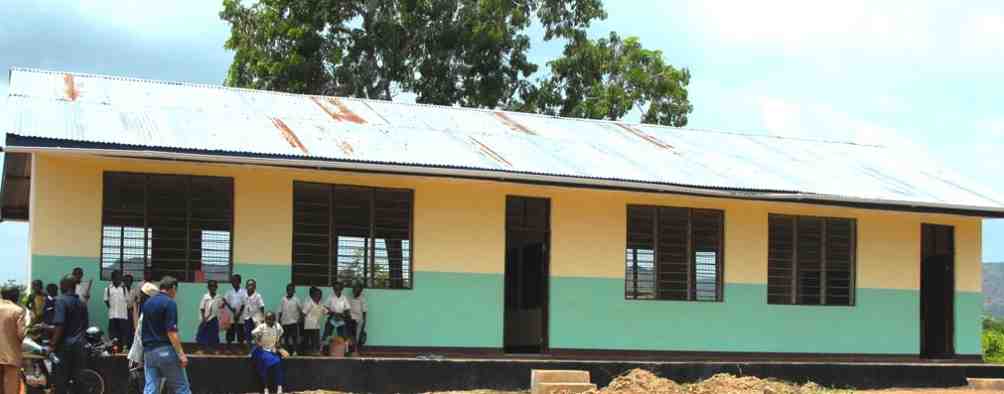
VILLAGERS DESIRE GROWTH AND FUTURE FOR THEIR CHILDREN
In 2009, the Tanzanian village called Majengo received their deep-capped water well.
Two years later, GAiN went back to the village to assess the impact. Within moments, the team noticed that there was a new building.
Villagers shared that the well not only gave them fresh, disease-free water, but it gave them the opportunity to create a new future for their community. They caught a vision that Majengo could grow and develop, whereby impacting the lives of their children.
As a result, the borehole committee collected a small fee from each villager for the use of water. Together with another village, they used some of the surplus in their bank account to help with the construction of a local primary school.
Dennis Fierbach, Director of Water Strategies, comments: “This building project was spear-headed entirely by the locals themselves. It’s encouraging to see that the well played a part in revitalizing Majengo’s development.”
When the well was first provided, GAiN conducted both well-maintenance training and hygiene and sanitation training with Majengo.
Villagers also shared that the village chairman really embraced this training, enforcing sound hygiene practices throughout the entire village. In fact, with a concern of cross-contamination, he charged a penalty to each villager that went back to get bad water from the hand-dug wells.
He also implemented new practices such as limiting the number of people that stood on the concrete pad as well as designating one person to do the pumping in order to minimize the wear and tear of the platform.
“This is a prime example of how the provision of a water well can have a tremendous impact on the community’s economy and affect the education of children,” says Fierbach.
A REMINDER OF GOD’S GOODNESS FOUND IN A TANZANIAN VILLAGE
In September 2010, Bill Blaney, CEO & Director of Global Aid Network (GAiN) Canada, Ken Forbes, former Chief Development Officer of Power to Change, and Ken’s wife, Lisa, stood amazed in the village of Kikwetu, Tanzania while watching a long line of people filling their 45lb containers of disease-free water.
In awe of the sheer magnitude of people, the team was introduced to the chairman of the borehole committee. As Bill talked with him, the chairman shared that thousands of people came from surrounding villages to get their clean water in Kikwetu, resulting in approximately 4,000 people utilizing this one water well.
After casually talking to the chairman for 15 minutes, the man leaned over and nonchalantly said, “Would you like to meet my son?”
Bill agreed and the man walked over to his wife, who was standing in the line for water. He lifted his three-month old baby out of her arms and said, “You know…I so love what GAiN stands for; the work they do and the impact that they have. Because of what they have demonstrated to us, I have chosen to name my first son ‘Gain’. I gave him that name at birth, because every time I look at him I want to be reminded of the tremendous work that GAiN has done for my people. And when he hears his name “Gain”, he will know that is stands for both the goodness of the Lord and all the good things that one can do for people.”
The chairman continued to share that so many blessings had come to the village since GAiN had drilled the well on March 3, 2009. He had become a Christian, along with five others, through the JESUS Film that was shown to 327 people on June 15, 2009, several others in the village had made decisions to follow Christ through the church that was planted shortly after, and the village was better off in terms of health, hope and many other areas.
“I could not help but be humbled,” shares Bill. “I saw the direct impact of GAiN’s work. This was very significant! We came alongside a community of people and helped provide for their needs, both physically and spiritually.”
As the three left Kikwetu, they wereonce again reminded that it is not always about statistics, but it is about people. People such as ‘Gain’ that will forever be part of that village’s history as well as serve as a testimony of God’s transforming power, through GAiN, to others in their community and in their surrounding villages.
